第86章 Chapter I. A Slave Among Slaves(3)
Naturally much of the conversation of the white people turned upon the subject of freedom and the war, and I absorbed a good deal of it. I remember that at one time I saw two of my young mistresses and some lady visitors eating ginger-cakes, in the yard. At that time those cakes seemed to me to be absolutely the most tempting and desirable things that I had ever seen; and I then and there resolved that, if I ever got free, the height of my ambition would be reached if I could get to the point where I could secure and eat ginger-cakes in the way that I saw those ladies doing.
Of course as the war was prolonged the white people, in many cases, often found it difficult to secure food for themselves. I think the slaves felt the deprivation less than the whites, because the usual diet for slaves was corn bread and pork, and these could be raised on the plantation; but coffee, tea, sugar, and other articles which the whites had been accustomed to use could not be raised on the plantation, and the conditions brought about by the war frequently made it impossible to secure these things. The whites were often in great straits. Parched corn was used for coffee, and a kind of black molasses was used instead of sugar. Many times nothing was used to sweeten the so-called tea and coffee.
The first pair of shoes that I recall wearing were wooden ones.
They had rough leather on the top, but the bottoms, which were about an inch thick, were of wood. When I walked they made a fearful noise, and besides this they were very inconvenient, since there was no yielding to the natural pressure of the foot.
In wearing them one presented and exceedingly awkward appearance.
The most trying ordeal that I was forced to endure as a slave boy, however, was the wearing of a flax shirt. In the portion of Virginia where I lived it was common to use flax as part of the clothing for the slaves. That part of the flax from which our clothing was made was largely the refuse, which of course was the cheapest and roughest part. I can scarcely imagine any torture, except, perhaps, the pulling of a tooth, that is equal to that caused by putting on a new flax shirt for the first time. It is almost equal to the feeling that one would experience if he had a dozen or more chestnut burrs, or a hundred small pin-points, in contact with his flesh. Even to this day I can recall accurately the tortures that I underwent when putting on one of these garments. The fact that my flesh was soft and tender added to the pain. But I had no choice. I had to wear the flax shirt or none; and had it been left to me to choose, I should have chosen to wear no covering. In connection with the flax shirt, my brother John, who is several years older than I am, performed one of the most generous acts that I ever heard of one slave relative doing for another. On several occasions when I was being forced to wear a new flax shirt, he generously agreed to put it on in my stead and wear it for several days, till it was "broken in." Until I had grown to be quite a youth this single garment was all that I wore.
One may get the idea, from what I have said, that there was bitter feeling toward the white people on the part of my race, because of the fact that most of the white population was away fighting in a war which would result in keeping the Negro in slavery if the South was successful. In the case of the slaves on our place this was not true, and it was not true of any large portion of the slave population in the South where the Negro was treated with anything like decency. During the Civil War one of my young masters was killed, and two were severely wounded. I recall the feeling of sorrow which existed among the slaves when they heard of the death of "Mars' Billy." It was no sham sorrow, but real. Some of the slaves had nursed "Mars' Billy"; others had played with him when he was a child. "Mars' Billy" had begged for mercy in the case of others when the overseer or master was thrashing them. The sorrow in the slave quarter was only second to that in the "big house." When the two young masters were brought home wounded, the sympathy of the slaves was shown in many ways. They were just as anxious to assist in the nursing as the family relatives of the wounded. Some of the slaves would even beg for the privilege of sitting up at night to nurse their wounded masters. This tenderness and sympathy on the part of those held in bondage was a result of their kindly and generous nature. In order to defend and protect the women and children who were left on the plantations when the white males went to war, the slaves would have laid down their lives. The slave who was selected to sleep in the "big house" during the absence of the males was considered to have the place of honour. Any one attempting to harm "young Mistress" or "old Mistress" during the night would have had to cross the dead body of the slave to do so. I do not know how many have noticed it, but I think that it will be found to be true that there are few instances, either in slavery or freedom, in which a member of my race has been known to betray a specific trust.